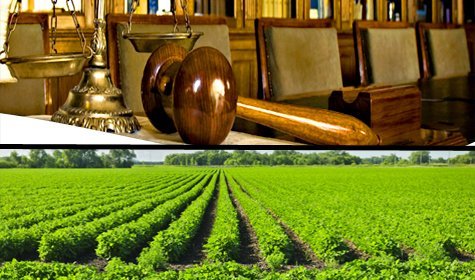Farming is more than a livelihood—it’s a way of life, and in Wisconsin, it’s also the backbone of the state’s economy. However, with the evolving nature of agricultural regulations, land use issues, environmental compliance, and business complexities, today’s farmers face a wide range of legal challenges. That’s where a farming law attorney in Wisconsin becomes an invaluable asset.
Agricultural law is a unique and specialized area of practice that touches on everything from zoning and water rights to farm succession planning and agribusiness contracts. Whether you own a small family farm or operate a large-scale agricultural enterprise, legal guidance can help protect your interests and ensure long-term sustainability.
Understanding Agricultural Law in Wisconsin
Wisconsin’s farming community operates under a complex network of local, state, and federal regulations. From livestock operation permits and conservation compliance to farmland preservation programs and leasing agreements, legal considerations are deeply embedded in the daily realities of farming.
A farming law attorney in Wisconsin helps farmers understand and comply with these laws while protecting their rights. For example, when a farmer wants to expand an operation, they may face zoning or land use restrictions that require legal approval. In other cases, environmental regulations may impact how a farm can dispose of waste or manage runoff—violations of which can carry steep penalties.
Agricultural attorneys also handle disputes over property boundaries, drainage issues, easements, or nuisance claims, which can arise between neighboring landowners or between farms and nearby residential developments.
Key Areas Where Farming Attorneys Offer Support
There are several areas where agricultural legal guidance is especially critical:
Farm Succession Planning
Ensuring the long-term future of a family farm often requires careful estate and succession planning. An attorney can assist in transferring ownership, creating trusts, or forming LLCs to protect farm assets while minimizing tax burdens.
Contract Review and Negotiation
From crop-sharing agreements and machinery leases to supplier contracts and land rentals, farms routinely deal with legally binding documents. Having a farming law attorney ensures these agreements are fair, enforceable, and tailored to your unique situation.
Business Structuring
As farms diversify—adding retail, agritourism, or processing components—they may require new business structures. An attorney can help form corporations or partnerships that limit liability and provide tax advantages.
Regulatory Compliance
Wisconsin farmers must comply with numerous rules related to labor laws, food safety, conservation, and environmental protection. Legal counsel helps interpret and adhere to these ever-changing requirements, preventing fines and enforcement actions.
Partnering with Legal Experts Who Understand Agriculture
When facing legal issues, farmers need more than just a general practice attorney—they need someone who speaks their language and understands their world. Bakke Norman has earned a reputation in Wisconsin for its extensive experience in agricultural law. The firm supports farmers, agribusinesses, and landowners with legal solutions tailored to their specific needs and challenges.
Whether you’re preparing for succession, facing a zoning dispute, or navigating regulatory compliance, Bakke Norman offers practical legal guidance backed by a strong understanding of Wisconsin’s farming landscape. For trusted counsel that prioritizes your future and your farm, consider reaching out to the experienced team at Bakke Norman.

